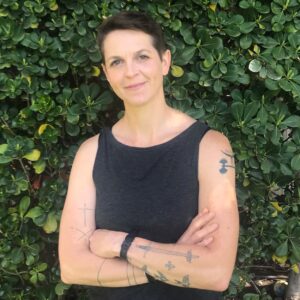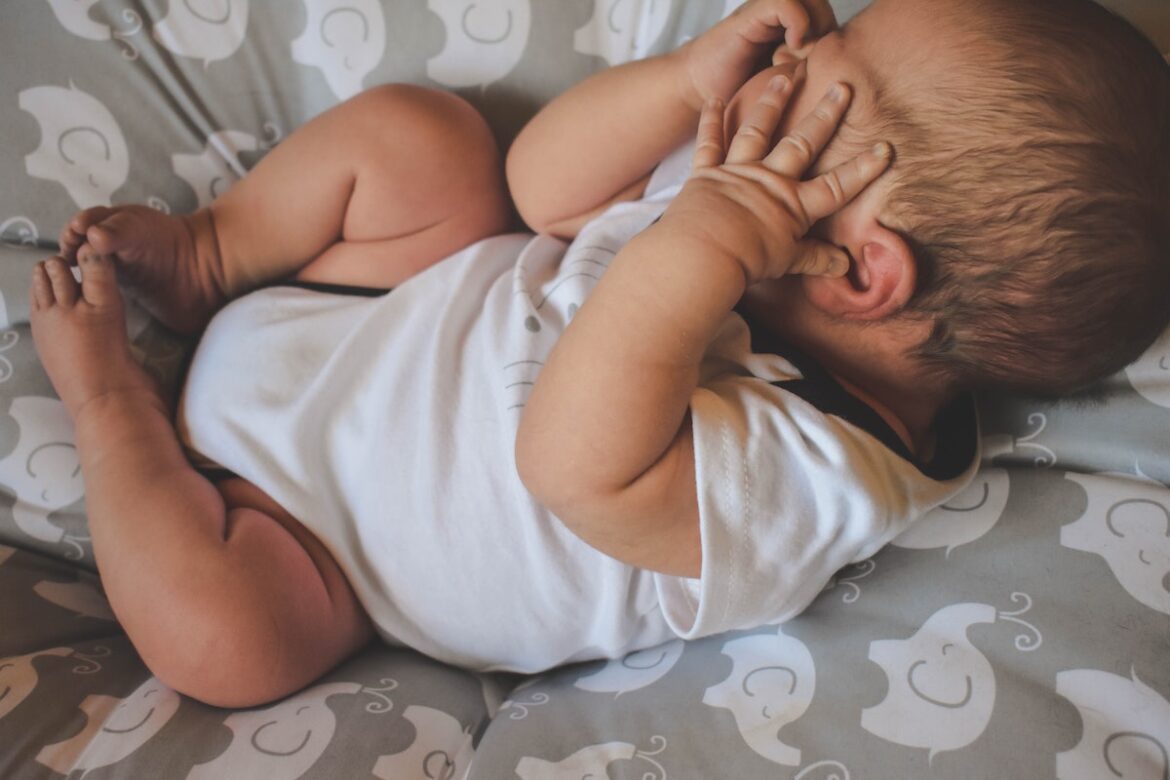By Jennifer Carraher
I am the daughter of an adoptee. My mother, adopted from an orphanage when she was nine months old, was raised by parents who were loving, protective, and kind people. They raised my mother, a second adopted son, and their third and only biological child in a pastoral, rural setting where the kids rode horses to their one-room schoolhouse, kicked around in the surrounding woods and pasture, and lived a pretty idyllic existence. When my mother was 18 years old, she became pregnant with me. In a whirlwind of impulsive action, she married my birth certificate father, moved 2,000 miles away from home, and six months later gave birth to me. By the end of the year, she had packed me up, returned to her parents, and essentially disappeared the man I believed to be my father. Within the next twelve months, she remarried, gained two more young children, and, four years later, she and my stepfather had a daughter of their own. Amidst this chaos, I immediately began to identify myself as an outsider in the family: a sensitive and insecure child, an interloper among the three children of a man with whom I lived but hardly knew. In just a few years, I was both born of and made into a fatherless child.
The psychological construct known as object relations theory has shown us the cruciality of early childhood relationships to identity formation; that is, the origins of the self emerge from exchanges between the infant and others. Originally theorized by Austrian psychoanalyst Melanie Klein, the essential idea is that the infant’s bond to the parents shapes future relationships. What this means is that the mother as a physical object is invested with emotional energy from the child, and the psycho-emotional impression of the mother—the internal object—comes to represent what the infant holds in her absence. If the object formation is disrupted early in life—as, I would argue, it is with virtually all adoptees and MPEs/ NPEs*—the failure to form these early relationships leads to problems later in the child’s life. Object relations theory also points out that situations in adult life are shaped by and mirror familial experiences during infancy.
My mother’s own adoption unquestionably caused for her a failure of identity formation leading to problems in later relationships. No doubt and with good reason, the sense of attachment and security that adoptees can, and likely do, feel carries over into adult relationships in all kinds of ways. The question is how this manifests itself. Adoption is not, by any means, the only way that this attachment disruption occurs. In fact, biological children may suffer the same disruption for a variety of reasons. The lack of attachment demonstrated by my mother in her adult relationships is not necessarily a reflection of her relationship with her adoptive parents, and not all adoptees develop in this same way. In our case, whatever the disruption my mother experienced as a child, whether the result of her late-infant adoption or some other barrier to her attachment, it severely affected her identity formation. This affected identity formation is where the intergenerational disruption of object formation can be seen most clearly.
I found out about my NPE status one year ago today. While reeling from the news for many months, I had not a single thought about my mother as a child—let alone as a daughter. I was too busy contemplating the questions, “Who is my father? Where has he been? Where can he be?” Over time, I began to ask myself questions about my mother’s own history, her fractured parental bonding as an adoptee, and how this object formation may have influenced her as a new mother in the NPE scenario. How does the attachment become so fragmented that the next generation could be subjected to suffering in this way?
The foundation of the relational object is one in which, as the infant grows, she naturally wants to consolidate the work of managing her most basic needs, which are described by Klein as drives; she does this by forming an attachment to an adequate caregiver who can contain these drives. For example, how the caregiver responds to the baby’s need to eat, comforts her if she cries, and meets her most fundamental needs. If these drives are met, then a good object relationship is developed. The caregiver, usually the parent, is the “good object.” To soothe herself, the infant eventually must be able to internalize that good object.
Conversely, if the caregiver cannot accommodate the infant’s drives, then the infant will experience the drives as being out of control and instead of developing a positive attachment to the mother or caregiver, the infant may develop a negative attachment. If the caregiver herself has inadequate object relations, if her drives have not been met and she is identified with a bad object (her absent parent), then it’s possible that in order to cope, the mother will project that identification onto the baby. This defense mechanism arises so that the mother may defend herself against unbearable feelings; it also works to defend the internal object against rage, which can destroy the internal object. The mother copes with the unbearable feelings and rage by externalizing those feelings. This is called projective identification. Because of this projection, the mother may begin to see the baby’s experience as the embodiment of her own bad object and perceived reality. For example, a mother may witness the baby crying uncontrollably and in that crying she will see the manifestation of the experience from which she has tried to distance herself. Because of this, her identification with a bad object is affirmed through her projection onto that child’s crying, and the child is left carrying that projected reality.
But how does this play out in the NPE experience? In my case, the object formation disruption seems to be about the attachment with the father. If the NPE’s mother is enacting her own loss of the father object by projecting it onto the baby, the NPE child may grow to identify herself with this negative experience. This means that the child suffers the mother’s perceived losses (fatherlessness in this case) because the mother’s own drives are disorganized. Instead of nurturing and helping the child to consolidate her needs, the mother continually and repeatedly projects chaos onto the child.
Because I was born to my young mother, perhaps in the midst of this object disruption, no doubt in part due to her experience as an adoptee, she exercised her projective identification on me. This allowed for an erasure of my father, or the man I understood to be my father—the exact experience she imagined for herself. She did this not only by removing me from my birth certificate father almost immediately after my birth, but also as I grew and developed, I was told in both explicit and subconscious ways that my step-father/father figure, with whom I had lived since the age of three, could not belong to me either. When I learned in my adult life that my biological father was someone else entirely, the projection further solidified.
It is not hard to envision that—because my mother was in an orphanage, was adopted, and expressed throughout her life massive levels of alienation—she continually saw herself as severed from her family, regardless of any external reality. Every detail of her experience as an adoptee could have triggered this alienation; for example, the birth of a biological son to her adoptive parents when she was 10 years old manifested as a catastrophic event for her. So many experiences of the adopted child can contribute to this perception of severance from the family.
All of these experiences, in turn, influenced how she saw me as a child. My mother was experiencing the absent father. By enacting a dramatized reality, she was able to facilitate her projective identification as a fatherless child onto me. She played this out by running from her own (adoptive) father, disappearing my biological father, and sticking my paternity on a non-father/stranger she almost immediately abandoned. In both subtle and overt ways, I was continually reminded that my step-father was not a legitimate parent either; he could never belong to me because I didn’t “come from” him. Ultimately, though, it was all a futile effort because the enactment and projection did nothing to contain her own distress. As an example of how this played out, when I discovered my biological paternity and asked her who she thought was suffering most in this situation, she simply replied, “Your father.” Like many other NPE mothers, there’s no ability for her to imagine the suffering of the child because she is so resigned to her own suffering.
Another developmental psychological theorist and psychoanalyst, Donald Winnicott, theorized that the role of the father is to temper the ambivalence between the mother and the child. Ambivalence arises when the needs of the parent and the needs of the child are in conflict. Maternal ambivalence, specifically as theorized by Freud, is a universal maternal experience in which the feelings of love and hate for the child can exist side by side. When the father is absent, there is what Freud calls an ever-present “third” in the mother’s unconscious mind. For the NPE, the role of the father to modulate the mother-child relationship does not exist. This may be why so many of us have long-standing conflict with our mothers and spend years saying things like, of all of the children, I was always the outsider, or I never understood why I didn’t fit in, or asking why did she dislike me, what did I do wrong, and, eventually, why could I not have known my father? The answer to all of these questions lies quite simply in the projective identification of the mother onto her child: “If I can’t have a father, neither can you.”
While my mother may have subconsciously or otherwise attempted to make me into a fatherless child, I do not see myself that way. In fact, I don’t actually believe that my mother perceives me as without a father. She sees it only in herself, and she projects her own suffering as an internalized, fatherless child onto me. I have come to understand over the protracted and immensely heavy year since my misattributed parent discovery, that even as NPEs, even through all of our intuitions and suspicions, detachments and alienations growing up, we do have fathers. We should never diminish the significance of this fact because if we continue the pattern of projection of the fatherless child in our own lives, the cycle can never be broken. The gift of the NPE discovery is the acknowledgement of what has been lost to us, the chance to discover ourselves anew in order to protect our own children by offering them our solid and unwavering belief in their fathers. The only way to do this, I am afraid, is to begin to forgive our mothers.
*MPE/NPE: misattributed parentage experience/not parent expected or nonpaternity event
Jennifer Carraher lives with her family in Sebastopol, California, where she’s an advanced practice public health nurse in the areas of women’s health and forensics. She’s also a medical sociologist who has worked extensively over the past 20 years in assisted reproductive technologies, kinship, and the social studies of science. Her current research is dedicated to promoting harm reduction as medical practice.
Since her misattributed parent discovery in December 2020, she has established The Mendel Project, which will provide DNA testing and genetic support at no cost to patients in the hospital setting. She also continues to collect narratives from other adoptees, NPEs, and those affected by genetic surprises for the podcast Unfinished Truths. Find her at themendelgeneticproject@gmail.com & unfinishedtruths@gmail.com.


